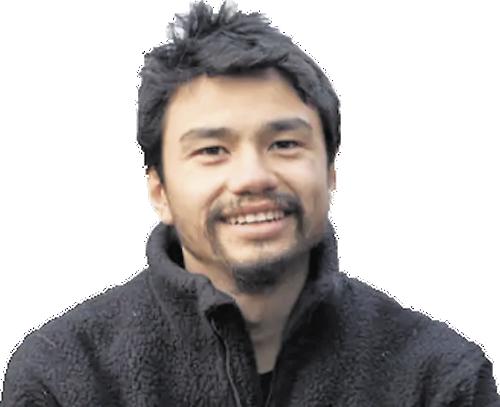Ali Tamlit (pictured right)
I’m interested in questions of: What does care look like? How can we support one another as whole people and communities – rather than seeing each other’s value in ‘productive’ activist times and then disappearing in times of burnout. And also how to balance accountability within this care?
Beyond this, as we go into the 2020s, although many positives will also happen, I think it’s important to acknowledge some trends which are likely to get worse: the climate breakdown intensifying, rising right-wing populism, and militarised borders.
These are linked of course, but the latter specifically links to some of Akala’s thoughts in Natives. He predicts that global power is shifting away from the Anglo-American empire and with it white supremacy is coming to an end.
While this is to be celebrated, when some people feel like their world is crumbling they vote for Brexit, Trump and Johnson. In this context I think reflecting on our own identity and social positions, while also learning to act in solidarity with those different to us, will be crucial.
Ali Tamlit is a facilitator with ‘Resist and Renew’ and a member of End Deportations and Plane Stupid.
Janet Fenton
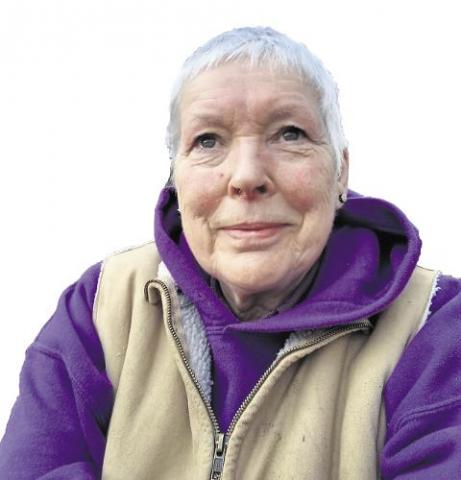
Starting a new year, thinking about peace, I looked at my January ‘to do’ list from 2019. I can just rewrite:
- Thank people who help and inspire me.
- Take time to get smarter at the tech stuff.
- Listen more carefully.
- Email, or write to, or phone, my old friends.
- Look after my health mindfully.
- Revive my creative skills.
I’m sure this list is familiar to many of us.
The planet and life on it is at terrible risk. The crisis is more than nuclear weapons and/or global overheating, although these two can impact on each other to make disaster irreversible.
I’ve spent years on nuclear disarmament, and I live in Scotland. This year, I’ll support the Treaty on the Prohibition of Nuclear Weapons and demand action from the Nuclear Non-Proliferation Treaty, and I’ll be active with friends when COP26 comes to Glasgow.
I also expect to be in court sometime, about some renaming on the Faslane Nuclear Base signs last year. But mostly my efforts for peace will be in writing for a show about Scotland’s democratic deficit, based on oral histories I collected from nonagenarians in the late 1980s, and sharing some time with the grandchildren.
Cymdeithas y Cymod

Dad-filiatreiddio Cymru. Dyna yw blaenoriaeth gweithredu Cymdeithas y Cymod ar gyfer 2020 (fel yn 2019) a dwy brif agwedd ar gwaith hwn yw:
- yr ymgyrch i atal recriwito pobl ifanc dan 18 oed i’r lluoedd arfog
- sefydlu Asiantaeth Arall-gyfeirio’r Diwydiant Arfau.
Fel Cymdeithas o bobl sy’n credu mewn dulliau di-drais o ddatrys gwrthdaro, rydym yn gwybod fod angen manteisio ar bob cyfle i dorri’r cysylltiad sydd ym meddwl cymdeithas rhwng ‘amddiffyn’ a bygwth neu hyd yn oed weithredu’n dreisiol.
Credwn felly fod angen cynnig opsiynau eraill i bawb sy’n cael eu tynnu at y byd trais ac mae’r amcanion uchod yn ffyrdd ymarferol o wneud hyn.
Fel heddychwr credwn ym mhwysigrwdd tystio’n barhaus i’r byd bod casineb a dial yn arwain at ddistryw. Gwrthwynebwn drais ar bob lefel mewn cymdeithas gan gynnwys trais yn y cartref, trais yn erbyn lleiafrifoedd yn ein cymdeithas, a thrais ar lefel ryngwladol.
Gyda’r Eisteddfod Genedlaethol yn dod i Dregaron, cartref Henry Richard, yr Apostl Heddwch, ym mis Awst eleni, rydym yn gobeithio y cawn ein hysbrydoli i ddilyn ei esiampl ef a gweithio i barhau gyda threftadaeth arbennig Cymru ym maes hyrwyddo heddwch dros y byd. ‘Cyflafareddu’ oedd ei air mawr e. Fel ‘cymod’, mae’n air anodd. Ond pwy ddwedodd erioed bod creu byd o heddwch cyfiawn a theg yn hawdd?
The de-militarisation of Wales. This is the priority action for Cymdeithas y Cymod (The Fellowship of Reconciliation in Wales) for 2020, and we have agreed on two main aspects of this work:
- to stop the recruitment of young people under 18 to the armed forces
- to establish an Arms Industry Diversification Agency
As a Fellowship of people who believe in nonviolent ways of resolving conflict, we know that we need to take advantage of every opportunity to break the link that exists so deeply in the mind of society between ‘defence’ and the threat, or even the execution, of violence.
We believe therefore that we need to offer other options to all who find themselves drawn to the world of violence. The above objectives are practical ways of achieving this.
As pacifists we believe in the importance of reminding the world that hatred and revenge lead to destruction. We object to violence on every level in society, including domestic violence, violence against minority groups and violence on the international stage.
Our national cultural festival, the Eisteddfod Genedlaethol, is this August visiting Tregaron. This was the home of Henry Richard, known as the ‘Apostle of Peace’.
We hope to take inspiration from his example and be energised in our determination to continue the longstanding Welsh tradition of peace-making across the world.
His big word was ‘arbitration’. Like ‘reconciliation’ it’s a difficult word. But whoever said that creating a world of just and fair peace was easy?
Angie Zelter
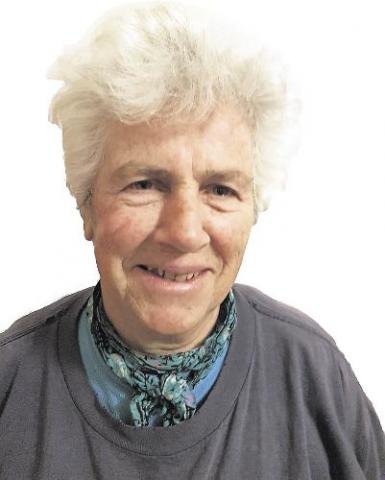
2020 is the 75th anniversary of the nuclear bombings in Japan and we should focus on de-legitimising ‘nuclear deterrence’. With Holyrood committed to nuclear disarmament, pressure must be applied at Westminster. The UK must be pushed to end its threats of nuclear annihilation and support the Treaty on the Prohibition of Nuclear Weapons.
This year, Trident Ploughshares will organise NVDA at Burghfield and Faslane and work with XR Peace targeting the MoD and BAE Systems (the fourth-largest global arms trader).
Both institutions ignore the human and environmental costs of ‘selling’ armed conflicts and enabling human rights abuses and exploitation of communities affected by the militarised extraction of minerals, oil and other ‘resources’.
The impacts of global military spending (well over $1.8 trillion pa) include pollution, biodiversity and environmental destruction, and climate chaos.
All movements for social change need to work together, there are no single issues, everything is connected. This means working with climate activists.
We need to increase participation in NVDA, making it prohibitively expensive for institutions/corporations to continue to destroy our planet. In the run-up to the Glasgow climate COP in November, we will pressure the Scottish and UK Governments to commit to viable changes before it starts.
Sue Claydon
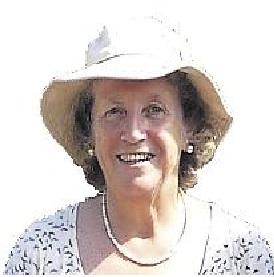
The start of a new decade should bring with it hopeful anticipation. Sadly, 2020 is opening to war threats in the Middle East and the resulting huge profits for arms manufacturers; the environmental crisis; and Trident costing more and more.
As peacemakers, what does this mean? We need to draw the links between these threats to ‘security’ for millions of people and the resulting violent conflicts, humanitarian disasters and forced movement of people.
While many readers of Peace News are well aware of these links, the general public largely are not so well informed.
We need to make this decade one of ‘Peace Education for All’. By connecting with the growing awareness and anger at the state of the environment, and challenging the default towards military provision as an ‘answer’, we can offer people of all ages real alternatives to violence.
By increasing and developing links with like-minded people and organisations – including in the development sector – the impact will be greater on both policy and the political realm.
The UN has often designated ‘decades’. Should this be one of ‘Educating for Peace’? It is only when people understand the issues that they challenge their governments to change.
Stuart Parkinson
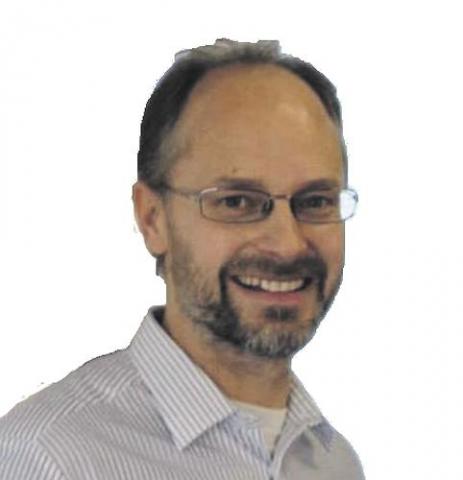
Some of the most critical issues for peace campaigners centre on the accelerating arms races – in both nuclear and conventional weapons.
On nuclear weapons, we have the combination of arms control treaties being discarded while nuclear weapons states ‘modernise’ their arsenals.
International tensions – especially between the USA and Russia – are high, and military postures are being made even more aggressive, with new threats of ‘first use’. Under development are smaller ‘more usable’ warheads and ‘hypersonic glide missiles’.
On conventional weapons, military scientists are developing ‘drone swarms’, while the possibility of lethal autonomous weapons (LAWs) grows ever closer. Trump’s ‘Space Force’ threatens an arms race in outer space, while research on ‘directed energy weapons’ – for example lasers – continues.
This year, we need to protect arms control treaties that may be abandoned or undermined – especially New START [see p4] – while also supporting new treaties – especially entry into force of the nuclear ban treaty (TPNW) and a treaty banning LAWs.
Humanity faces two existential threats: nuclear war and climate catastrophe. Each increases the risk of the other. Supporting climate campaigners – and especially highlighting the huge carbon emissions of the military – will be increasingly important.
Jim Brann

2020 sees the 50th anniversary of the activation of the Nuclear Non-proliferation Treaty (NPT) under which the ‘official’ nuclear powers committed to ‘negotiating in good faith’ the abolition of their nuclear weapons.
Britain has never done so, in line with the secret government decision of 1946 to ignore unanimous UN security council Resolution 1 calling for the urgent ‘elimination of atomic weapons’. Instead it began developing a nuclear bomb with ‘the bloody Union Jack flying on top of it’.
2020 also sees another NPT review conference. Past failures of these led the majority of countries to back the creation of the nuclear weapons ban treaty, which should enter into force this year.
We have to seize this moment to defeat the deception around the role of Britain’s nuclear weapons.
Meanwhile the unique NATO integrated military bloc, led by the US, which came out of the Cold War and which should have died with it, continues on its expansion trail. Once officially ‘defensive’, it has reorganised itself for worldwide intervention, waging wars on three continents while expanding far to its east and creating military ‘partnerships’ around the world.
Taking that on is a task of the 2020s.
Kathryn Tulip
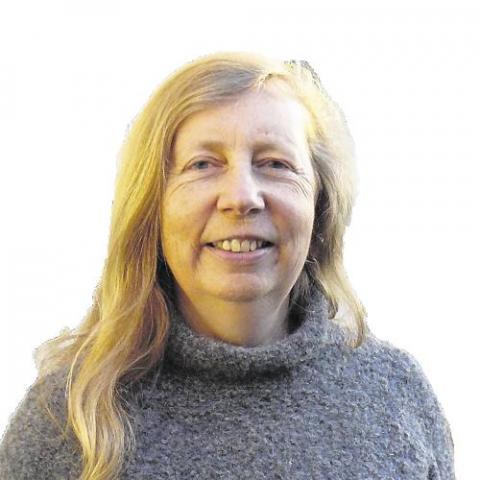
As we face the climate emergency, mass extinction and the potential for social unravelling, it becomes crucial to build stronger movements and communities that can work effectively together to make the impacts less severe, oppose injustices, and be the peaceful, just world we want to see.
Building these stronger movements and communities is rooted in developing effective, collaborative ways of working.
It requires us to build connection where there is greater difference in views and experience than we have perhaps been used to within our existing groups and networks.
We need to build explicit systems (rather than allowing implicit systems to arise) – for organising, decision-making and conflict engagement – that stay true to our aims and values, that attend to issues of power and oppression, and that support previously marginalised voices to be heard.
That’s how we will create the resilient and thriving movements and communities needed to face the storm over the coming decade.
Start in 2020 by reviewing the existing organisational systems (implicit and explicit) in your group or network. Develop and agree proposals that can strengthen existing systems – or build new ones – for transparent and accountable decision-making and information flow, conflict transformation and care and wellbeing.
Aldermaston Women’s Peace Camp
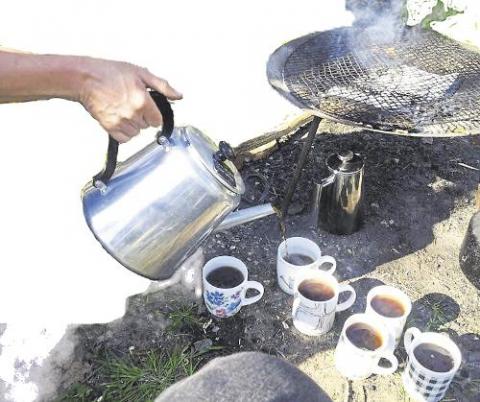
Aldermaston Women’s Peace camp meet outside the nuclear warhead factory near Reading in Berkshire, the second full weekend of every month. We camp on the Friday and/or visit on the Saturday. Women are welcome any camp weekend.
The military has one of the biggest effects on the environment, and nuclear weapons are an extreme manifestation of the military machine. Britain is blasé about nuclear weapons, but the Trump/Iran standoff shows that we are on a knife-edge.
We would like to reach out to more women. For 2020, women are all invited to a 12–13 June ‘Get Together’ to envisage the future of our camp where we monitor and bear witness to the continued draining of our resources on the unethical monstrosity.
For that weekend, bring a tent if you intend to camp and come for a convivial get-together around the campfire to talk about the details of Aldermaston. For info or a lift call: 07946 676 761.
Over the next decade we would like the overall movement to gain more profile and grow with optimism and positivity.
The next decade must concentrate on collaboration between the groups recognising and tackling the links between climate change and the continued threat of nuclear weapons.
Rebecca Johnson

2020 will be critical for tackling the interconnected security threats arising from the climate emergency, nuclear war, and sexual and racial violence and exploitation.
It doesn’t get more personal and political than this.
Take urgent action to remove from power those who abuse and destroy our rights, choices, lives and security. Or keep quiet and collude. The decisions and actions we take will determine the future: extinction or transformation.
ICAN’s immediate priority is to bring the 2017 Treaty on the Prohibition of Nuclear Weapons into force this year. We’re nearly there, and once this multilateral treaty takes full effect internationally, it will provide stronger legal, political and economic tools to halt further weapons and programmes, including Trident.
Even where nuclear-dependent governments like UK are not ready to sign, humanitarian networks are persuading city councils, mayors and parliamentarians to pledge support, end military investments and take steps to promote nuclear ban implementation wherever they can.
Other killing technologies such as autonomous weapons, robots and drones are also on our agenda for banning. From XR and Million Women Rise to nuclear abolition and climate justice, be part of the feminist humanitarian revolution and together we will transform our world.
Christian CND
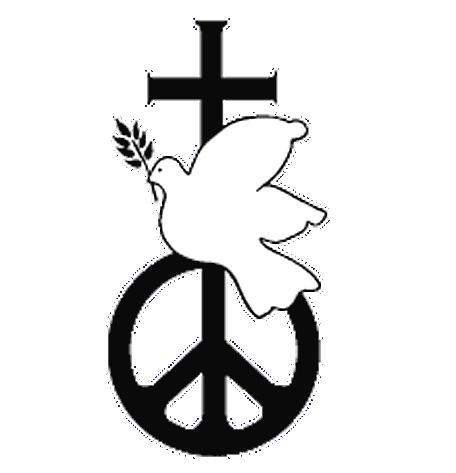
Christian CND continues to work and pray for a peaceful world free of nuclear weapons at the start of the new decade. As we mark our 60th anniversary in 2020 we’re building towards the United Nations Nuclear Non-Proliferation Treaty Review Conference in New York.
It’s a chance for the international community to take a step towards a nuclear-free future. After previous meetings ended in deadlock, we hope this chance will be taken.
Looking further ahead we continue to share our message of peace based on the teachings of Jesus to Christians throughout the UK. So many denominations have expressed support for nuclear disarmament and the leadership shown by pope Francis on this issue has encouraged us.
The big challenge internationally in the 2020s will be maintaining the rules-based order built up by treaty over decades in the face of isolationism and nationalism around the globe.
The decision of the United States to withdraw from the Intermediate Nuclear Forces (INF) treaty and the Iran nuclear deal undermines multilateral efforts for peace.
The peace movement must remain vigilant against any further erosion of treaties while pressing for others, including the Treaty on the Prohibition of Nuclear Weapons, to come into force.
Martin Schweiger

I support the Menwith Hill Accountability Campaign (MHAC).
A series of large golf balls on the moors outside Harrogate look curious but harmless. Taking time to learn about what is happening there brings the realisation that what is done there is far from harmless.
In early January, we heard about the assassination of Qassem Suleimani, killed by a US drone strike.
It is likely that the drone strike was facilitated by activities at Menwith Hill, which uses substantial surveillance resources to identify ‘targets’ and then provides a communications link between the drone pilots in the USA and drones flying over the Middle East.
We rarely hear about the deaths and injuries of people not targeted but who simply were nearby when the target was attacked.
Can we learn more about what is being done at Menwith Hill? How does that relate to other US bases?
In developing the MHAC website, we can share what we know, shining a little light in a dark place. The ‘Independence from America’ event on 4 July allows us to hear from those with more knowledge than we have or who come with a different point of view.
Theresa Alessandro
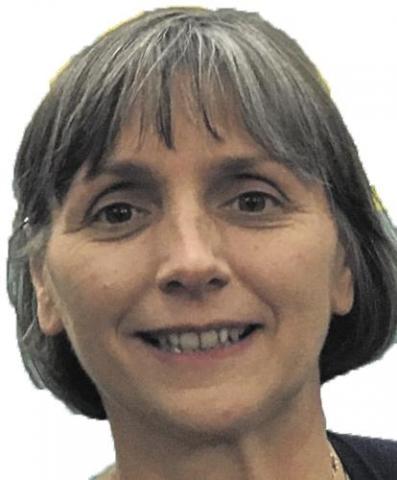
2020 is an auspicious year for Pax Christi International, marking our 75th anniversary.
Of course, this year also marks the 75th anniversary of the bombing of Hiroshima and Nagasaki. Supported by the Asia-Pacific regional group, Pax Christi International members will gather to reflect and plan at our World Assembly in Hiroshima in May.
The title is ‘Remember, Rise: The Promise of Peace’. We’ll be promoting the UN Ban Treaty of course.
Look out for a new report called Banks, Pensions and Nuclear Weapons: Investing in Change. In it, Pax Christi and other faith-based researchers detail our engagement with UK banks and pension providers regarding their (widespread) investment in financing nuclear weapons – against the background of the UN Ban Treaty which will delegitimise such investments surely!
Institutions are rated regarding their policy, practice and transparency. There will be ideas for personal and group actions, informed by the data.
Longer term, through the Catholic Nonviolence Initiative, we’ll be painstakingly continuing to develop and articulate active nonviolence, ultimately aiming to deepen the Catholic church’s commitment to it.
Like lots of peace groups, we’ll be uncovering links between climate change and peace – perhaps partly through our new strand of work on extractives.
Jane Tallents
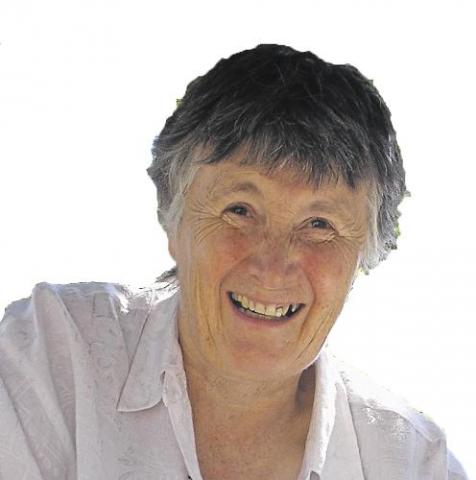
Sometimes, reports of the climate crisis devastating ecosystems and communities around the world give me flashbacks to the ’80s.
Then we lived in constant fear of a nuclear war destroying all that we loved in a matter of minutes. The difference was that, if the people with the power to blow up the world held back, we would just carry on as we were.
That’s not going to happen with the climate. The catastrophe has already started for many people around the world.
The links between militarism and the climate are many and the threat of nuclear war is still there with international tensions so easily ramped up by a few egotistical men. As peace activists we have much to do.
This year is vital. We have to take every opportunity to push our government not only to reduce the harm we are doing but also to work with other governments ahead of COP26 to make the changes we need.
If there was ever a time for you to consider taking part in nonviolent direct action, this year is it.
Join XR Peace in connecting climate and militarism and promoting the co-operative ways forward that we all need.
Henrietta Cullinan
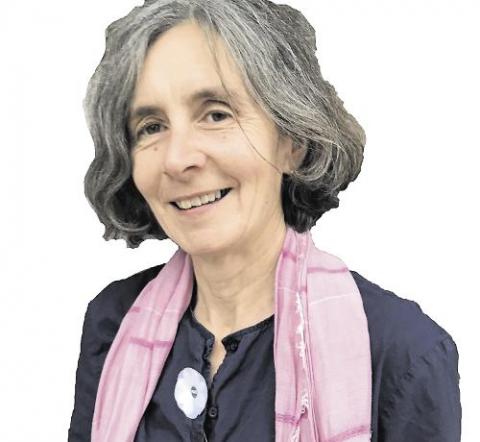
Dorothy Day (1897–1980), founder of the Catholic Worker in the United States, wrote: ‘The Gospel takes away our right forever, to discriminate between the deserving and the undeserving poor.’
I would like to have asked Dorothy Day what she thought of us here in the UK, where, despite having the NHS and a welfare state, so many are excluded, leading to the terrible violence of poverty. The increase in rough sleeping, for example, by 165 percent since 2010, is all-too-painfully visible.
Our focus should be resistance to the worldview that some are more deserving than others. I don’t know if we can change this over the next decade. But perhaps it’s possible.
The same worldview considers it permissible to perpetuate violent conflict and to destroy others’ habitats, as long as it’s a safe distance away. It thinks its own security and prosperity is more important than anyone else’s.
This year, inspired by the DSEI protests last September, I have resolved to attempt to interact personally with arms company executives and the politicians who support them with our taxes.
With other Catholic Workers, I’ll continue to press for the ban on nuclear weapons and urgent action on climate change.
Paula Shaw
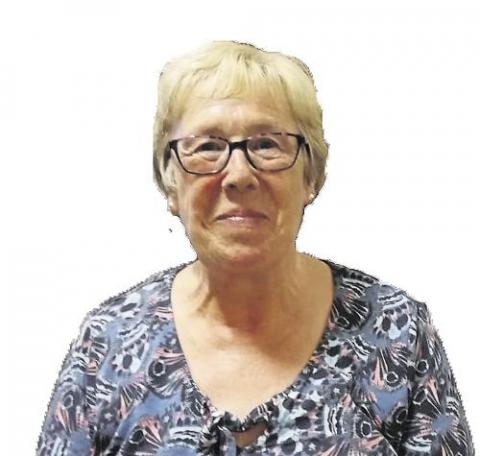
Changes only come slowly if at all. Women’s International League for Peace and Freedom UK looks at peace campaigning through a feminist lens as women are disproportionately affected by militarism and war.
In 2020, we celebrate 20 years of UN security council Resolution 1325 which gave a place for women at peace negotiations.
We still enjoy traditional peace campaigning but recognise the value of social media campaigns. This decade should see the best use of communications to get the peace message understood and acted upon. We work in partnership with many groups and we are a member of XR Peace.
We are so close to having enough countries ratify the UN Treaty on the Prohibition of Nuclear Weapons that we hope this will come into force soon. When this happens, the UK will be acting illegally by replacing and/or maintaining nuclear weapons.
We still have some members who started this campaign at Greenham Common and have worked tirelessly since the 1980s. Well done to them.
As a section of WILPF International, we value our internationalism. This decade will have more barriers, for example leaving the EU, but we must continue to work in partnership with other groups and with other countries for common goals.
Neville Grundy
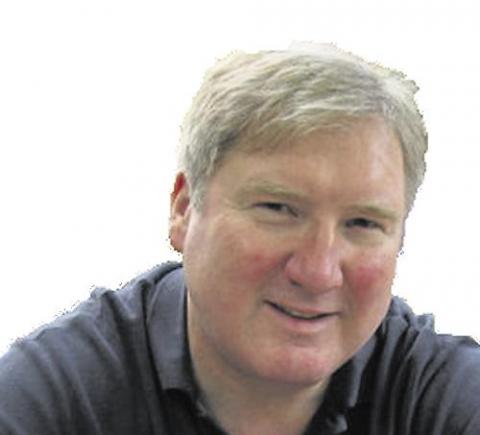
One incident in the 2019 general election should have seriously alarmed peace activists.
Asked whether she would ‘press the button’, Lib Dem leader Jo Swinson immediately and emphatically replied ‘Yes!’
The complete lack of any further questioning by the interviewer or others in the media demonstrates how little impact decades of peace campaigning have had at political and journalistic levels.
Her further statement that anyone who won’t ‘press the button’ is a risk to national security indicates how far nuclear weapons are still unquestioningly seen as part of the UK’s defence.
No one required her to answer the point that a nuclear war would within minutes kill or injure hundreds of millions of people, drive species towards extinction, destroy the world economy and cause catastrophic, irreversible, climate change
The peace movement should link more closely to the climate change movement which is gaining much media attention, not to ride on their coattails, but because we have a common cause.
The message must be that a nuclear war would immediately do more damage to Planet Earth than decades of ignoring global warming – surely a far greater danger to our national security than a refusal to ‘press the button’.
Jenny Engledow
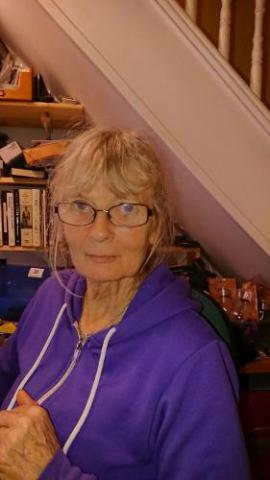
Brighton and Hove Against the Arms Trade have been working to gain local attention for the arms parts factory in our midst, where release mechanisms are made for ‘Paveway’ bombs that are sold to Turkey, Saudi Arabia, Israel and the US.
We have evidence that they have been used on the people of Yemen, so we are stepping up our campaign. We have shown a film about the arms trade, The Shadow World, hosted street theatre, done lock-ons on the factory gates and held demonstrations that have grown larger each time.
Over the next few months, we are hosting speakers in public meetings with talks on politics/aggression starting in late January with Turkey, then Saudi Arabia in February and Israel in March.
We shall have a variety of ongoing actions at the weapons factory, trying to discourage people from working there and looking at how we can persuade students at the universities not to taking up employment there.
The growth of the warmongers means more bombs are needed to feed the deadly machine hence the expansion but our aim is to get it closed down. We’ll continue building public knowledge and pressurising the local council to do whatever they can to close it down.
Karen Robinson

We need to create as many opportunities as possible to come together, work together, support and look after each other…. These are difficult times. It’s going to be a long haul.
At Conscience: Taxes For Peace Not War, we would love to collaborate with kindred souls and organisations who are passionate about campaigning to redirect the huge sums we spend on war to projects that will nurture peace.
Giving more attention to the funding which underpins war, and the fact that we pay for the military through our taxes, is a really important medium-term focus for us.
And we would really appreciate people’s input as we build support towards our key longer-term aim: a change in the law so that each person has the right to conscientiously object to paying for war, and can opt to divert the military part of their taxes to peaceful purposes.
On a personal level, I feel hopeful that the Treaty on the Prohibition of Nuclear Weapons will be ratified by the 50th state in 2020 and so come into effect: a cause for celebration! And I would love to mark the 40th anniversary of Greenham Common Women’s Peace Camp in 2021!
Reem Abu-Hayyeh
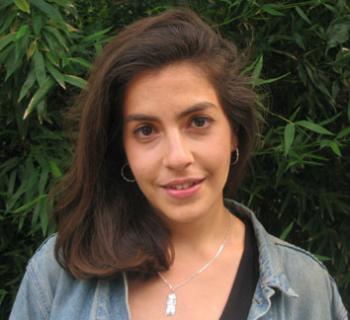
The humanitarian and health impacts of armed conflict, nuclear weapons, military occupation and global structural inequalities are well-evidenced, and devastating. Yet world leaders gloat on Twitter about military attacks and threats of war, while journalists flippantly ask prospective party leaders whether they would ‘push the [nuclear] button’ to see whether they are ‘tough enough’.
This year, Medact will be focusing on growing the movement within the health community of those challenging the arms, nuclear weapons and militarism industries.
We will be finding new ways to give a voice to health workers in the Global South, working on the frontlines of armed conflict and human rights abuses. It is vital to combat the normalisation of bombing hospitals and health centres, and highlight the impacts of military occupations and siege on healthcare.
We’ll also be campaigning in coalition with other organisations for a Just Transition away from the arms industry to investment in industries needed to tackle the climate crisis.
War, global economic and health inequalities, climate catastrophe, violent immigration and border enforcement practices… All of these are connected, and this year we must be prepared to shine a light on these links and work together towards a better future for all.


